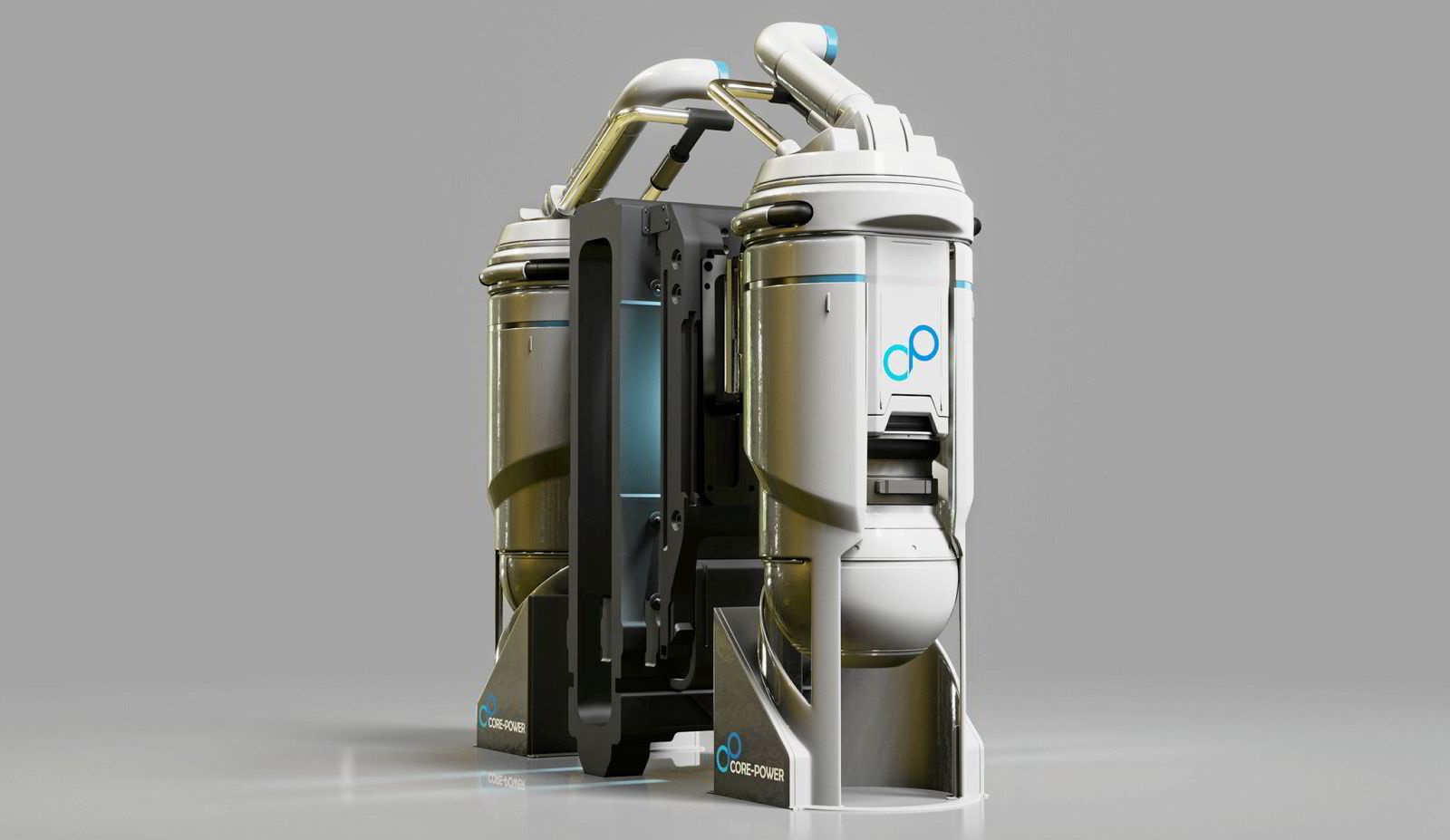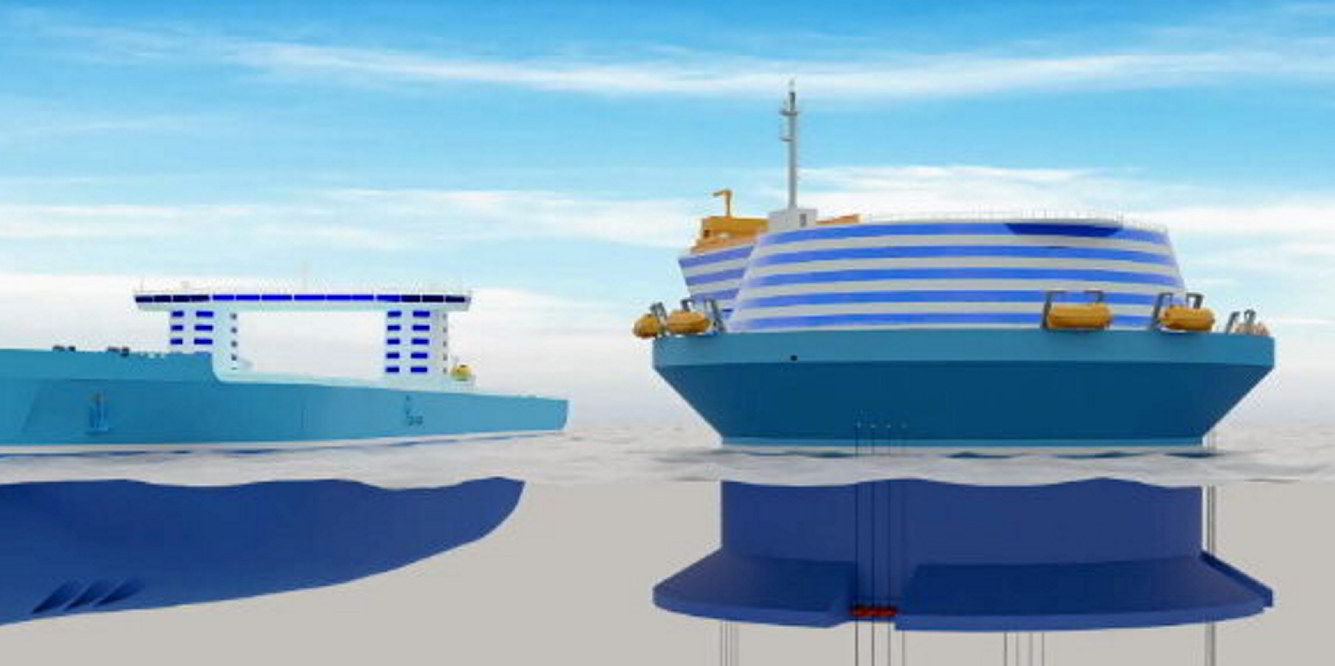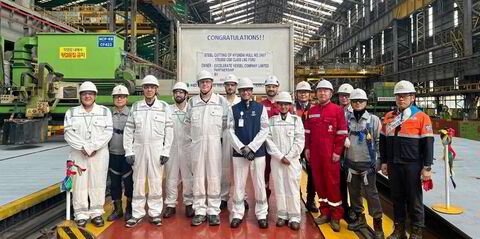A growing number of industry stakeholders are warming to the idea that it is time to look at nuclear power as a potential key to unlocking zero-carbon shipping.
The appeal of the technology is its complete lack of greenhouse gas emissions, as well as the belief that fears about nuclear are overblown and based on older technology.
John Hadjipateras, best known as chief executive of New York-listed gas carrier owner Dorian LPG, is among shipowners who think nuclear should be a part of the resolution of shipping’s GHG problem.
He has made what he describes as a small but long-term investment of his private money in Core Power, the UK-based start-up that is working to bring molten salt reactors (MSRs) to shipping. The company also has the backing of Singapore container line X-Press Feeders as it aims towards operating a prototype reactor around 2025.
“I just think it needs to be in the mix,” Hadjipateras said of nuclear, telling TradeWinds that it represents an opportunity “if you can take your mindset off the idea that nuclear is bad”.
He pointed to the reduced threat of meltdown posed by advanced reactor technology compared with conventional nuclear plants.
MSRs, proponents argue, are safe from meltdowns because the fuel is already a liquid, does not contain water and is not under pressure, reducing the risk of explosion or release of toxins. And it requires disposal of only small amounts of spent radioactive fuel.
While Core Power envisages nuclear-powered ships, Hadjipateras said the technology could be used to charge plug-in electric ships or to produce green ammonia.
He recognises that nuclear shipping could be decades away, but he also sees a long road ahead to wean shipping off fossil fuels, with many issues to resolve with other zero-carbon alternatives.
Far out
“You’d have to say today that if you look out 10 years, the biggest alternative fuel will still be LNG,” he said.
Mark Smith, a loss prevention executive at insurer North P&I Club, said shipping needs to take the risks of nuclear seriously, but it needs to weigh each individual nuclear technology separately.

When most people think of nuclear, they imagine the pressurised water reactors that remain the staple of navy ships and power plants, rather than the MSRs that are under consideration to fuel ships of the future.
“I’m not going to try to say to you that there are not dangers there,” Smith said. “But certain risks are reduced compared to other types of technologies.”
Less pollution
Nuclear propulsion could help reduce oil pollution incidents and is expected to have fewer engine maintenance issues.
As with other technologies, shipping will have to ensure that crews are trained, that MSRs are maintained properly and that passive failsafe systems are in place to ensure safety, Smith said.

Core Power has started designing dedicated training facilities and certification programmes for MSR operators.
Chief executive Mikal Boe said in an article published on the North P&I website that this will take four to five years to develop.
Smith said it is important to do that preparation beforehand.
The industry does not want to get into a situation in which MSR-powered ships are built before there are sufficient suitably trained crew and specialists to operate them safely, he said.
As shipping explores its options to decarbonise, Smith said marine insurers have to stay abreast of technological developments, rather than sit back and let them happen around them.
“We’re looking at the fuel technologies that are out there now, and we’re risk-assessing it and trying to get an understanding of the risks that are proposed,” Smith said.
Environmental groups that want to see shipping clean up its carbon emissions more quickly woiuld like it to focus on options that lead to more immediate emissions reductions.
“This is a distraction from the main task we have, which is to halve emissions by 2030,” said Lucy Gilliam, senior shipping policy officer at Seas at Risk.

The only way to do that, she said, is to use existing technology and change the management of shipping operations and trade — and any new fuel would need to deliver emissions reductions this decade.
“There are significant risks to crew, society and environment with nuclear, which we do not see being resolved easily, especially in an environment of a ship operating globally,” said Gilliam, whose organisation is part of the Clean Shipping Coalition.





